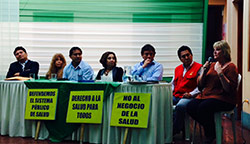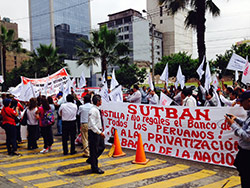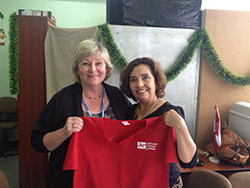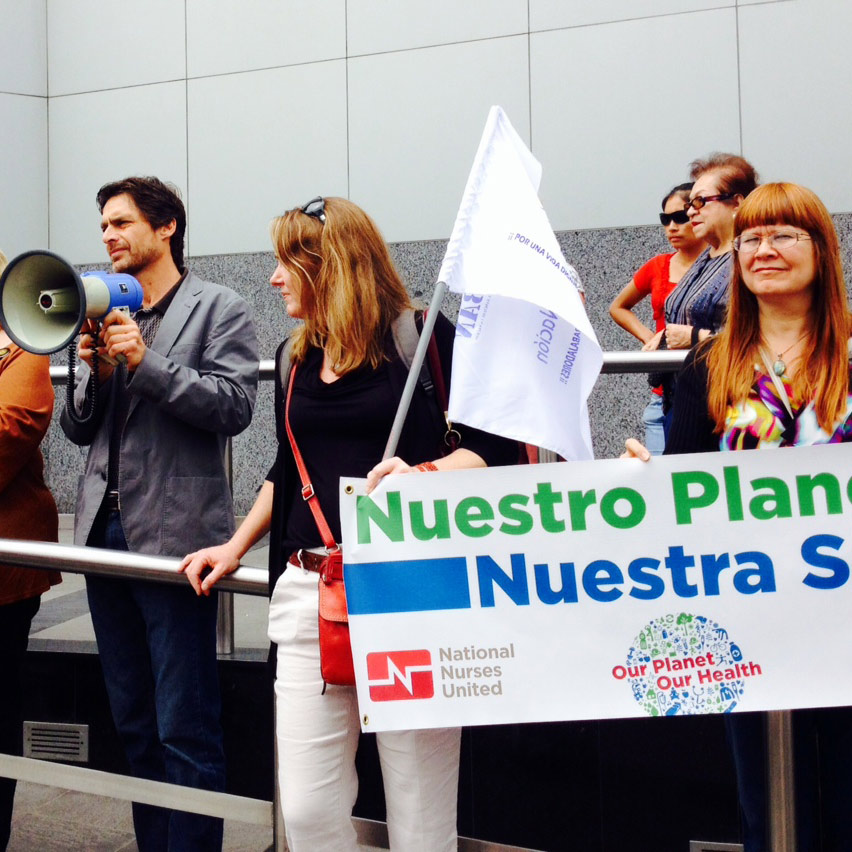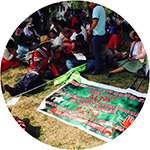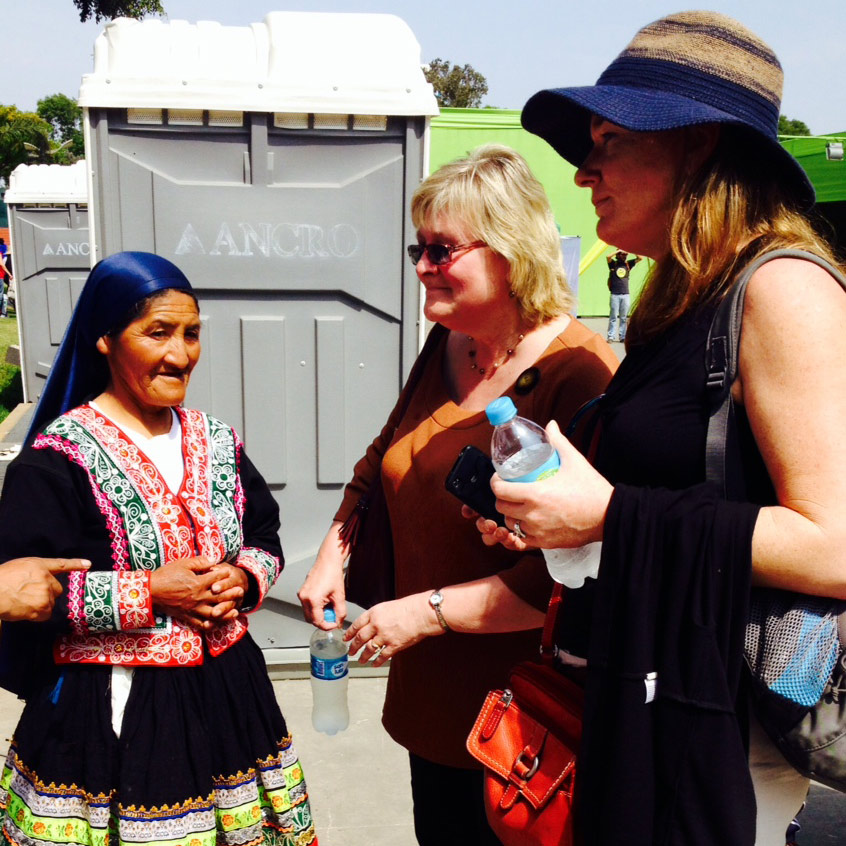Blog
Scenes from Climate Change Summit in Peru
Nurses landed in Lima, Peru this week at the start of the United Nations Climate Change Summit - #COP20. We're here to emphasize the health impact of our climate crisis and to let people know we want to be part of the solution. We're joining thousands of other activists and meeting allies who are gathering for forums, discussions and protests during this historic environmental justice moment.
We met some indigenous people from Cusco, a World Heritage Site and the historic capitol of the Inca Empire. They described how the mining activities are making them sick and contaminating the water they need to sustain their crops and themselves. They traveled 21 hours by bus to reach Lima in hopes of sharing their story and getting help. Their mayor told us that he was recently imprisoned for fighting the mining interests that are threatening their water, health and potentially their very existence.
As nurses, we know it is important to listen to people's stories and concerns. It is also important to use the analytical tools of our practice, the Nursing Process, to seek and advance evidence based best practices that protect the public health and sustain communities and our planet as a whole.
For instance, the World Health Organization recently declared that air pollution and particulate pollution are carcinogens and need to be managed much more aggressively. We also know that dirty emissions containing carbon are contributing to the global climate crisis we are facing today and need to be addressed immediately.
I believe that we also need to apply the advocacy skills that we use in our profession to promote the health and safety of all people BEFORE they require hospitalization from exposure to toxic air, water and disease.
We had the privilege of meeting the President of the Peruvian Federation of Nurses, Zoila Cotrina Diaz. She discussed the problems with Peru's underfunded public health care system. A panel of union leaders representing nurses, doctors, oral surgeons, pharmacists, support staff, as well as two panelists representing the disabled and those who are HIV positive were all part of the discussion.
The consensus was that there're simply not enough health professionals to serve everyone. Panelists stated that there are 30 private/public hospitals for approximately 30 million people. In the more remote areas, patients have no access to hospitals and health care workers have training that's equivalent to nursing assistants. The patient representatives complained that they could not get appointments or access to needed medications or adaptive equipment.
Diaz said that Nurses need to reclaim their humanity in caring for people. Nurses need to be much more than functionaries doing our tasks. Some might call that caring for the whole patient with genuine empathy. But she also said that we need to carry this attitude of caring into the community. This means caring for people where they are and also helping them to address the causes of preventable disease and death. This includes sources of local pollution and polluters that contribute to climate changes that can impact health and food security for vulnerable communities.
We're attending various panel discussions led by environmental advocates. Each one is calling for fundamental changes to how we produce and use energy.
Carbon emissions must be severely curtailed immediately. This means keeping coal, gas and oil in the ground as much as possible and switching to clean, non-combustion renewable energy sources like solar and wind. This also means emphasizing conservation of energy and resources.
The signs are clear. We are observing a global climate crisis unfold. We need to do much more than watch. We need to urgently seize the opportunities we have to avert further ecological and health disaster.
